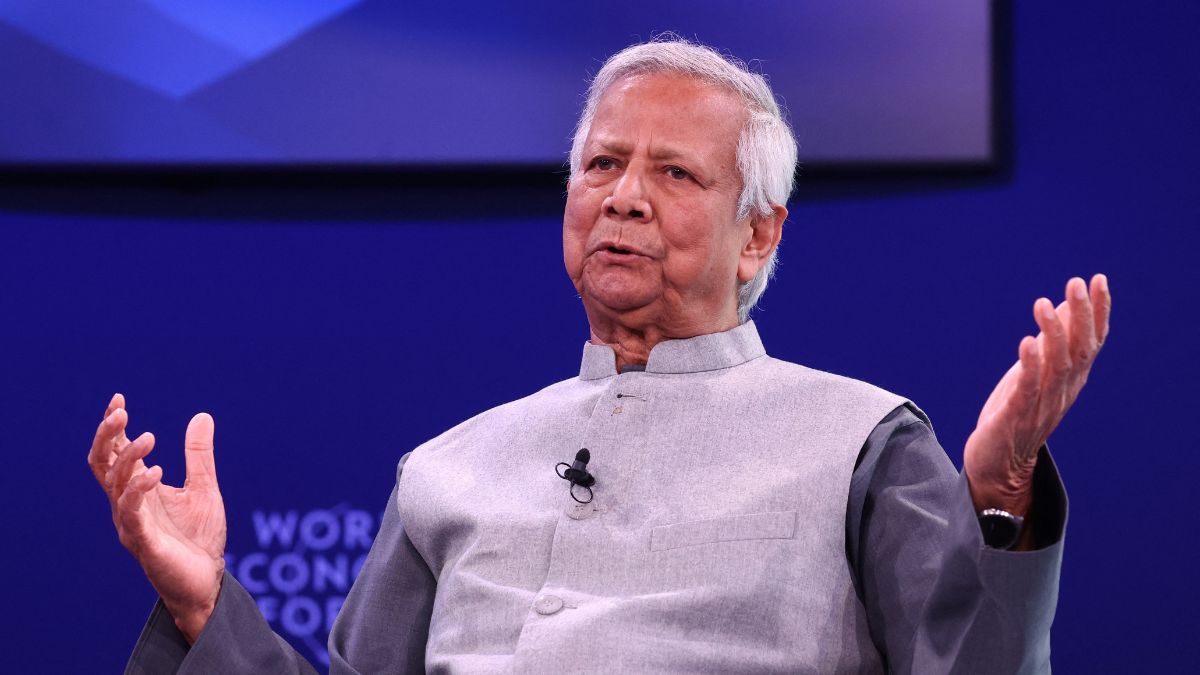The interim government in Bangladesh, led by Nobel laureate Muhammad Yunus, announced that it will formally present the much-anticipated “July Declaration” on August 5, exactly one year after the fall of Sheikh Hasina’s Awami League government.
In a statement issued Saturday, Yunus’s press team said the final draft of the declaration is ready and will be unveiled in front of representatives from all factions that supported last year’s mass protests.
“The interim government has finalised the draft of the July Declaration. It will be presented on Tuesday, August 5, 2025, before the nation in the presence of all parties in favour of the mass upheaval,” the statement read.
The declaration seeks to give constitutional legitimacy to the youth-led movement that erupted in July-August 2024, ultimately forcing Hasina to flee the country. The Students Against Discrimination (SAD), a group that played a central role in the uprising, had long demanded formal recognition of the movement’s political significance.
Information adviser Mahfuj Alam, whom Yunus earlier called the “main brain” or the mastermind of what is dubbed the July uprising, meanwhile, said the much-anticipated July Declaration was now a “reality”.
“It will be announced on August 5. I thank everyone for keeping this issue alive in the public conscience and helping pave the way for its implementation,” said Alam, who was one of the top leaders of Students Against Discrimination (SAD).
The SAD led last year’s violent campaign that eventually toppled the Awami League regime, prompting Hasina to flee the country on August 5, 2024. However, the idea for the July Declaration arose to SAD leaders by the end of December last year.
Impact Shorts
More ShortsA leading SAD figure, Hasnat Abdullah, now a top leader of the National Citizen Party (NCP), an offshoot of the SAD that emerged in February this year visibly with Yunus’s blessings, on December 28 last year announced a “declaration of the July Revolution” would be declared in the capital on December 31.
In the subsequent days, SAD leaders put in their efforts to popularise terms such as “Second Republic” through the July Declaration.
They planned a grand rally to announce the “proclamation” to “bury” Bangladesh’s 1972 “Mujibist Constitution”, and declare the Awami League “irrelevant”, sparking political tensions and speculations.
Yunus’s government initially preferred to distance itself from the move, calling it a “private initiative”, but in a surprise announcement later said the government itself would prepare the “proclamation of July uprising” incorporating views of the SAD, all participating students, political parties and stakeholders.
The proponents of the declaration say it is aimed at “unifying the nation around last year’s core values of anti-fascism, democratic resurgence, and state reform” but it sparked debate among political parties – not only over its content alone but also over whether it should be granted constitutional status.
Former prime minister Khaleda Zia’s Bangladesh Nationalist Party (BNP) standing committee member Amir Khasru Mahmud Chowdhury said there was no scope to bring any change in the political process outside parliament, which does not exist in the country.
“There is no scope for constitutional amendments outside it (parliament),” he said at a party rally in the capital.
The senior BNP leader said discussions regarding constitutional amendment were still underway but if any amendments were to be made to the constitution, they must be done through parliament.
Legal experts said the existence of Bangladesh would be at stake if 1972 constitution is scrapped, as demanded by the SAD earlier.
With inputs from agencies
)